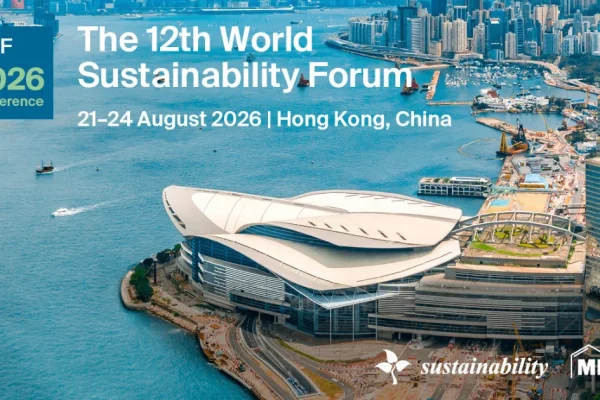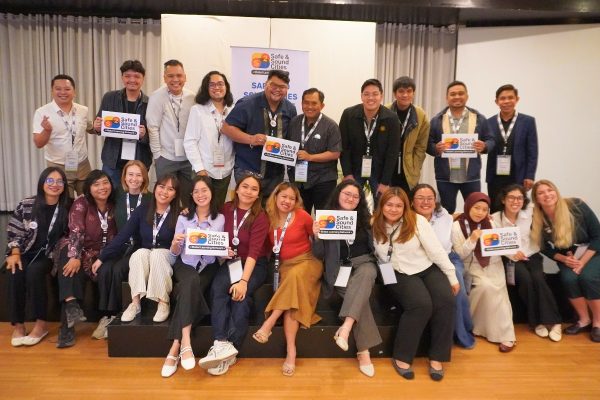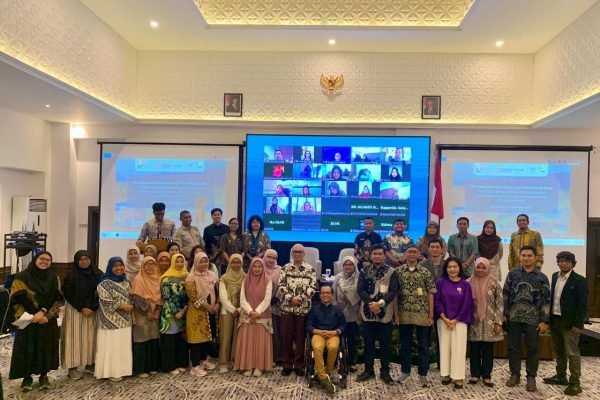National Advisory Group of ICLEI Indonesia calls for a stronger vertical integration between the national and local governments to ensure collaborative approach towards the climate crisis.
Jakarta, Indonesia – ICLEI – Local Governments for Sustainability Indonesia convened the National Advisory Group (NAG) for three of its projects, Ambitious City Promises (ACP), Urban-LEDS II, and 100% RE on 20 February 2020 at the AOne Hotel, Jakarta to solicit the NAG members’ input and insights towards the achievement of Indonesia’s Nationally Determined Contribution (NDC).
Indonesia aims to reduce its greenhouse gas (GHG) emissions by 29% by 2030 . Through the NAG, Yayasan ICLEI Indonesia receives high-level support for the implementation of its flagship projects. Inputs and advise from the NAG also enables ICLEI Indonesia to offer support for local governments as they strive towards low emission development.
The members of NAG include local government representatives such as DKI Jakarta Province, West Nusa Tenggara Province, Balikpapan City, Tangerang City, Bogor Regency, Mataram City, and Sumbawa Regency. Civil society organizations are represented by I-SER, APEKSI, C40, WWF, IESR and Jakarta Berketahanan. National government agencies such as Ministry of Energy and Mineral Resources, Ministry of National Development Planning, Ministry of Environment and Forestry (MoEF), Ministry of Public Works and Human Settlements, and Ministry of Transportation are part of the advisory group as well.
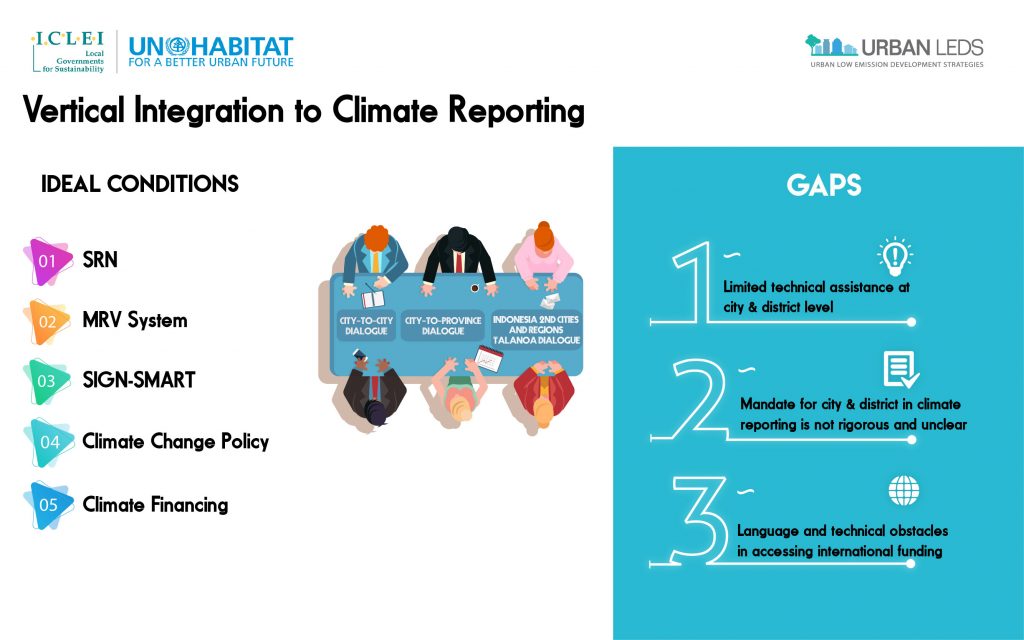
Ms. Rika Lumban Gaol of ICLEI noted that there are certain gaps in terms of strengthening vertical integration in Indonesia.
The NAG meeting opened with a short introduction of Yayasan ICLEI Indonesia’s projects to address low emission development. These include the ACP which aims to support DKI Jakarta, Tangerang City, and Bekasi City as they draft inclusive and participatory climate action plans and the 100% Renewable Energy Cities and Regions Roadmap which aims to support Mataram City and Sumbawa Regency as they explore potentials to transition to renewable energy sources.
Urban-LEDS II is another project working with Bogor and Balikpapan as pilot cities and satellite cities including Bontang, Tarakan, Tangerang Selatan and the Bogor Regency. This initiative aims to improve vertical integration on climate action to actively contribute to Indonesia’s NDC, contribute to 12 MtCO2e of reduction targeted across project cities, and elaborate on eight low emission strategies at the local level.
Vertical integration towards collective climate action
Commencing the discussion about vertical integration, ICLEI Project Officer Rika Lumban Gaol shared infographics that aimed to discuss the following: climate change policies at the global and national level, nine strategies of NDC implementation as recommended by MoEF, the monitoring, reporting, and verification (MRV) system as designed by MoEF, the National Registration System that allows stakeholders to report climate change mitigation and adaptation actions and the action plan for reducing GHG emissions at national and subnational levels by 2019.
Further, Ms. Lumban Gaol also discussed the highlights of vertical integration initiative, specifically the pilot testing of landfill gas recovery methodology for preparation of Indonesian Certified Emission Reduction (ICER) mechanism in Manggar Sanitary Landfill, Balikpapan City. Currently, ICLEI, together with DLH Balikpapan City, is strengthening vertical integration regarding waste management in cities. Through this endeavor, gaps hindering successful vertical integration were found to be: limited technical assistance for cities and districts, the existence of unclear and binding mandates for cities and districts in reporting climate action, and language and technical challenges in accessing international funds.
Sustainability and MRV Plans
During the discussions, Mrs. Nur Masripatin, Senior Advisor from MoEF, likewise stated, “The most important point in each program is sustainability. How do we ensure that the program is sustainable even if it has been finished? During this time, many good programs have forgotten this aspect. The transition process to the regions needs to be considered so that commitment is maintained.”
On the other hand, reacting to the 100% RE project, Mr. Yuliadi, Head of Energy of the Energy and Mineral Resources Department of West Nusa Tenggara Provincial Government shared, “In 2019, the Provincial DPR has set Regional Energy General Plan (RUED-P) to achieve regional energy targets, especially in renewable energy. But there is a misalignment of national policies from the Ministry of Energy and Mineral Resources. Access to funding becomes problematic because the city and district governments do not have the authority to fund projects, especially in the energy sector. “
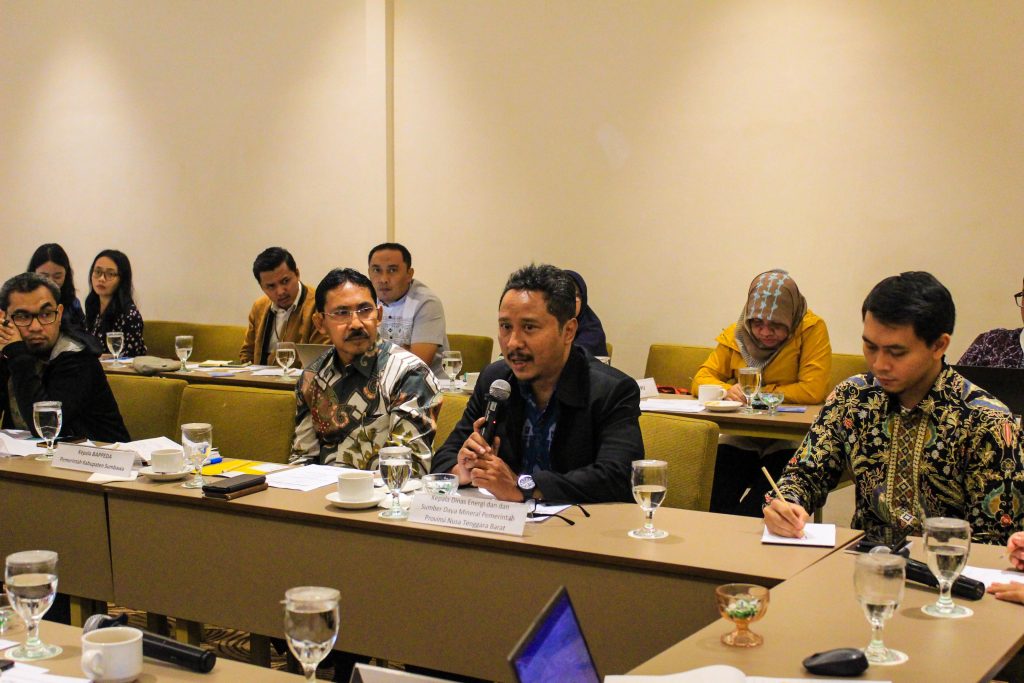
Head of Energy of the Energy and Mineral Resources Department of West Nusa Tenggara Provincial Government Mr. Yuliadi shared his thoughts about renewable energy at WNT and barriers they faced.
To this, ICLEI responded that Urban-LEDS II plans to roll out a capacity building exercise to support local governments in producing feasible and bankable project proposals.
To close the session, Country Manager of ICLEI Indonesia, Ari Mochamad stated that a city resilient to the effects of climate change requires a comprehensive policy that considers funding and institutional aspects. During this time, many strategic and action programs are clear but are constrained in the aspect of funding, the reason why access to potential funding and schemes to support is needed. At present, collaboration is an important choice given the limited human resources and scope.


